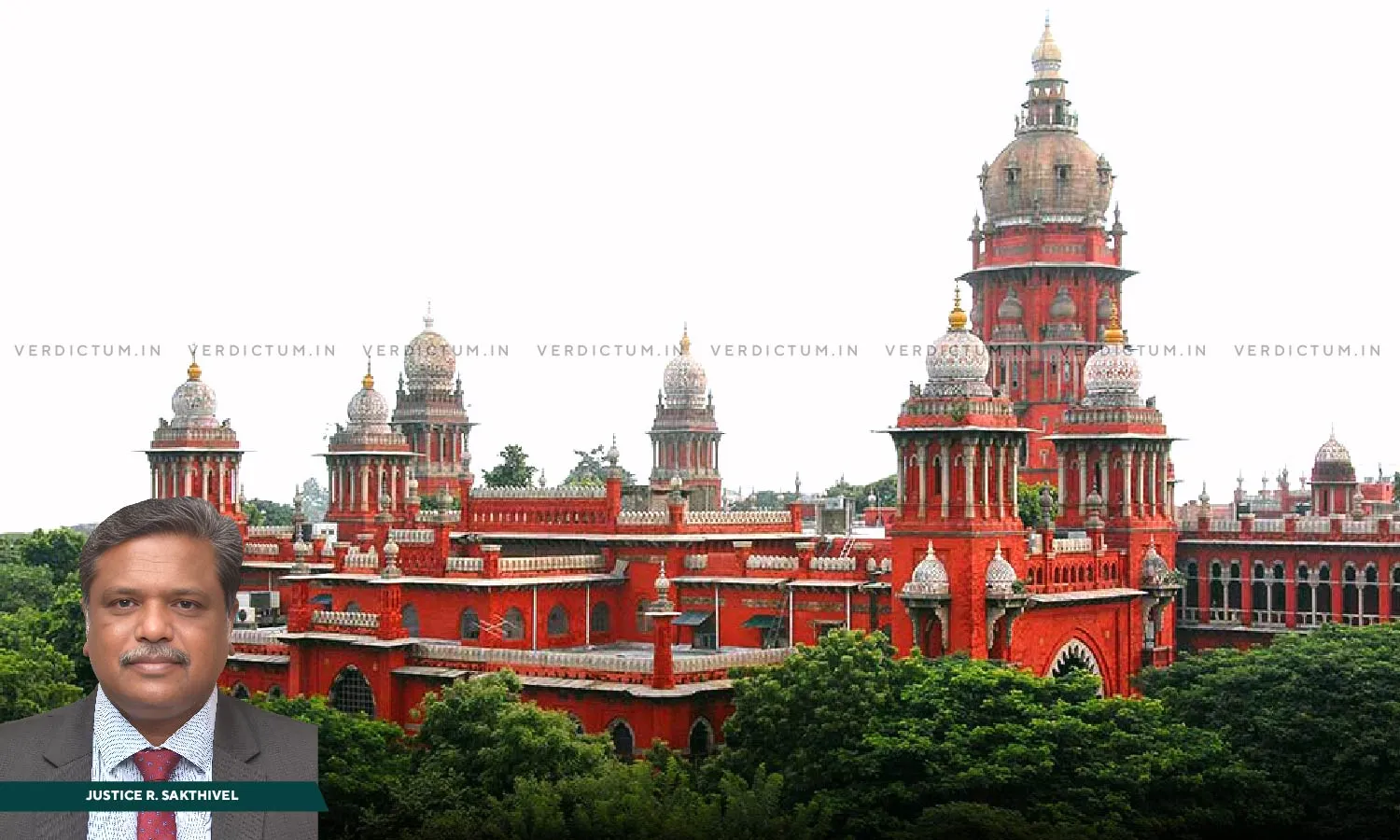Absence Of Penetration Into Vulva Of Victim As Per Explanation To Sec 375 IPC Vide Act 13 Of 2013 Will Not Constitute ‘Rape’: Madras HC

Justice R. Sakthivel, Madras High Court
Finding from the deposition of the doctor who examined the appellant / accused that the accused had abrasion injuries over his right forearm and left little finger and that she was told by the victim that the accused had undressed her and threatened to sexually abuse her, the Madras High Court held that victim’s evidence, keeping in mind the law in force at that time, attracts only the offence of attempt to rape and not rape itself.
A Single Judge Bench of Justice R. Sakthivel observed that “There is no evidence to suggest or prove that the accused committed penetration. Absence of Penetration into vulva of victim, as per the explanation of the then Section 375 of IPC which was in force on the date of occurrence, would not constitute the offence of rape”.
The Bench further added that “there is no medical evidence available on record to prove or suggest penetration. In these circumstances, the earlier statements of the victim to the medical examiners assume much importance and can’t be brushed aside”.
Advocate M.G. Udaya Shankar appeared for the Appellant, whereas Advocate A. Gokulakrishnan appeared for the Respondent.
The brief facts of the case were that victim is running a petty shop right opposite her house, and she also has two acres of land which is maintained by her husband and mother-in-law. The accused is residing in the same hamlet as the victim. When the victim was alone in the petty shop, the appellant came and purchased Halls and cigarettes. Later, she closed the petty shop and proceeded to her land. At that time, she noticed that the appellant was following her. Suddenly, the appellant pushed her down, undressed her and committed rape on her. The appellant threatened to kill her if she discloses the incident to anybody and left the scene of occurrence. Later, the victim was brought to Government Hospital, as she was suffering from body pain. The next day morning, the victim gave complaint statement to the police and handed over the clothes worn by her at the time of occurrence. Based on the complaint, a case under Section 376 of IPC was registered and filed final report under section 376 of IPC and Section 4 of 'Tamil Nadu Prohibition of Harassment of Women Act, 1998' was made. The Trial Court concluded that the charge under Section 376 of IPC and Section 4 of TNPHW Act has been proved beyond reasonable doubt but in view of Section 71 of IPC, convicted the appellant for the offence under Section 376 of IPC alone as the ingredients of Section 4 of TNPHW Act forms an integral part of the offence of ravishment mentioned in Section 376 of IPC and imposed punishment to undergo rigorous imprisonment for seven years and a fine of Rs.2,000/-, in default, to undergo two months simple imprisonment.
After considering the submission, the Bench found that the alleged occurrence took place on Dec 27, 2010 before the substitution of Section 375 vide Act 13 of 2013 and as per the explanation 1 for the then Section 376 of IPC, penetration is sufficient to constitute the sexual intercourse necessary to the offence of rape i.e., penetration is sine quo non for an offence of rape.
The Bench pointed that in order to constitute penetration, there must be clear and cogent evidence to prove that some part of the virile member of the accused was inside the labia of the pudendum of the woman, no matter how little.
“But in the present case, P.W.1 did not mention anything about penetration. She only mentioned that the appellant / accused applied his mouth and bit and sucked her vulva. As per medical evidence, there was no internal or external injury in and around the genitalia and no spermatozoa was found inside the vulva”, added the Bench.
The Bench also pointed that the prosecution did not collect the semen sample from the accused and match it with the stain and therefore, the alleged stain in MO-3, is not connected with the accused.
The Bench noted that the act of the accused would amount to attempt to rape which is punishable under Section 376 read with Section 511 of IPC.
The Bench found that the accused has failed to prove his defence that there occurred a scuffle between him and the victim pertaining to a debt of Rs.200/- near Periyakambantham Railway Gate, and if really any occurrence had happened as alleged by the accused, naturally some person would have witnessed it.
“It’s a settled position of law that the defence can be established either by way of cross-examination of the witnesses and/or by adducing evidence on his behalf, the standard of proof being preponderance of probabilities”, quoted the Bench to observe that mere suggestion put to the prosecution witness does not amount to proof.
The High Court therefore decides that the charge against the appellant under Section 376 of IPC is not established by the prosecution beyond reasonable doubt but the acts of the accused attract the offence of attempt to rape punishable under section 511 of IPC and therefore, there is a reason to interfere with the judgement of the trial court.
Accordingly, the High Court convicted the appellant for the offence of attempt to rape punishable under Section 376 read with Section 511 of IPC and imposed with punishment of rigorous imprisonment for five years and fine of Rs. 2,000/-, in default of which, to undergo simple imprisonment for two months.
Cause Title: Santhosh v. Inspector of Police
Click here to read/ download the Judgment

